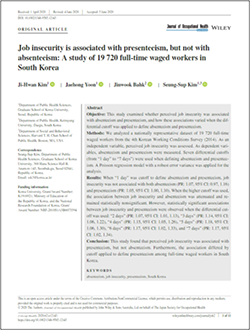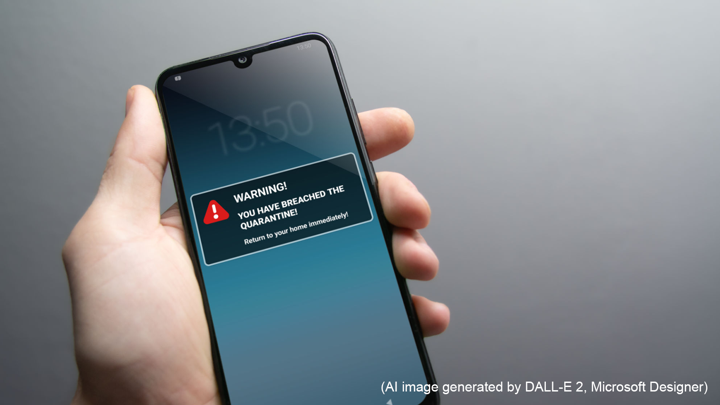#0074 Job insecurity is associated with presenteeism, but not with absenteeism: A study of 19 720 full-time waged workers in South Korea

Should I Call in Sick? How job insecurity relates to absenteeism and presenteeism in Korea
Every day, millions of people feeling sick have to ask themselves a rather tricky question: should I go to work or not? The decision between working despite sickness (presenteeism) and being absent from work because of sickness (absenteeism) is influenced by many factors, such as how strict a company’s sick leave policy is or if one would rather keep working than stay home because of economic reasons.
In particular, feeling insecure about one’s position—the fear of losing one’s job and not being able to find a similar one—has been shown to increase stress levels and have a general negative impact on health. However, previous studies have reported conflicting results about the effect of job insecurity on absenteeism and presenteeism. This stems mainly from the fact that most researchers have not simultaneously considered both behaviors and also have used different definitions for them.
In our study, to tackle this problem, we investigated the statistical relationship between perceived job insecurity with yearly absenteeism and presenteeism in a large and representative sample of 19,720 Korean full-time workers. One key aspect of our work is that both behaviors were defined using various differential cutoffs. For example, with a cutoff of three days, cases of absenteeism were only counted if an employee was absent from work due to sickness at least three days in total over a given year.
The use of differential cutoffs yielded interesting results. For a cutoff of one day, we found no statistically significant relationship between job insecurity and either absenteeism or presenteeism. However, for larger cutoff values, the results indicated that there is a strong correlation between job insecurity and presenteeism only.
Our findings help confirm the premise that insecure employees are more prone to working despite sickness and also show that the definitions of absenteeism and presenteeism used are crucial in these types of quantitative studies. Moreover, the strength of our approach lies in that we verified that our results were not due to other hidden factors, such as demographic variables or the size of companies.
Though absenteeism is more in the spotlight in occupational health studies, high presenteeism is concerning because it frequently leads to more bad than good for both companies and employees. Future researchers should carefully consider how they are going to quantitatively define such work-related behaviors so as to draw more reliable and consistent conclusions.

Link to the original journal article:
https://onlinelibrary.wiley.com/doi/10.1002/1348-9585.12143
Title of the paper:
Job insecurity is associated with presenteeism, but not with absenteeism: A study of 19 720 full-time waged workers in South Korea
Authors:
Ji-Hwan Kim, Jaehong Yoon, Jinwook Bahk, Seung-Sup Kim




